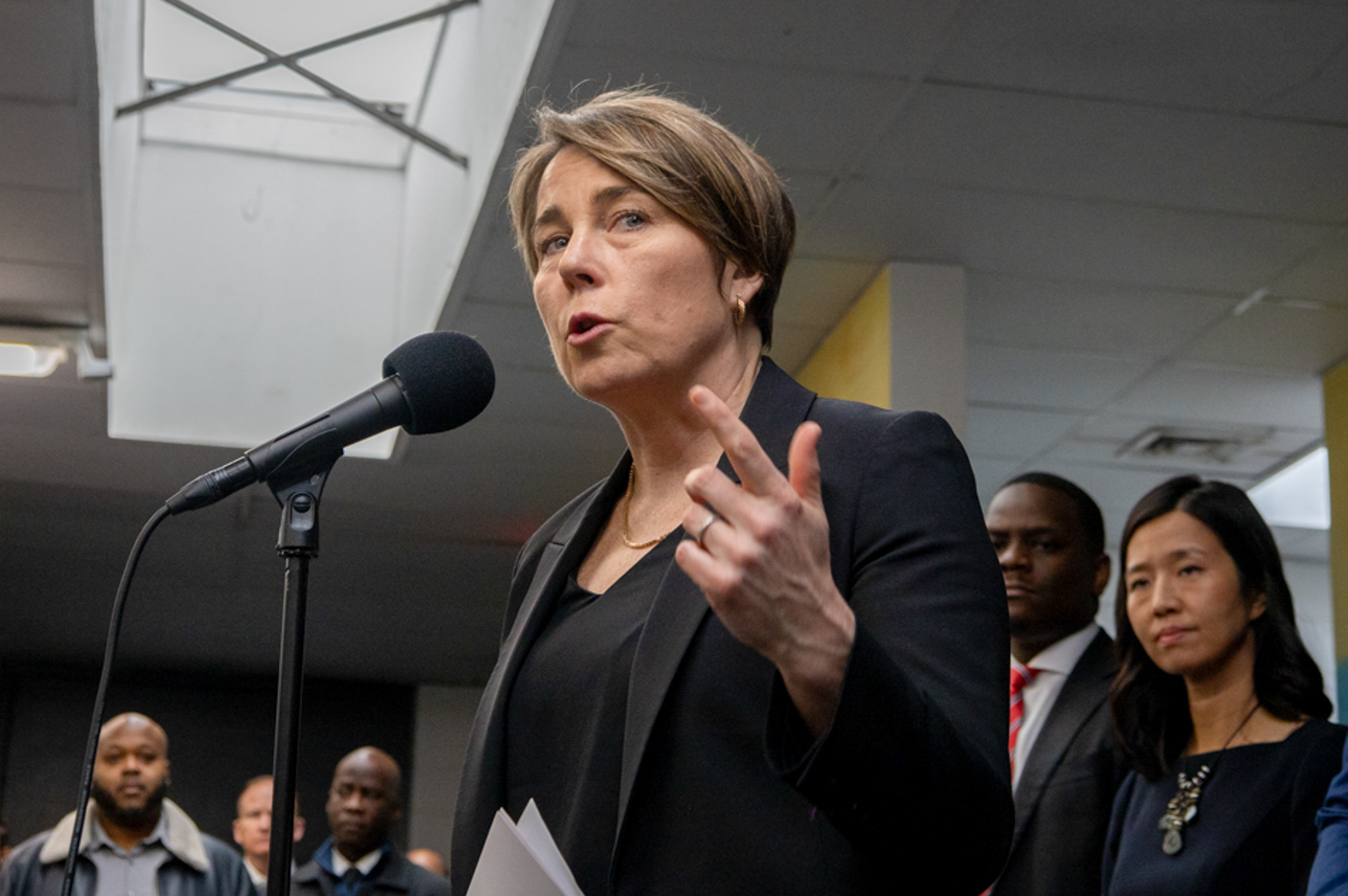In a move mirroring a growing national trend, Governor Healey declared her intention to pardon individuals convicted of low-level marijuana possession.

This decision targets convictions in Massachusetts state courts for possession of marijuana or “Class D substances” that occurred before March 13, 2024. This initiative stands out as a significant effort to redress the consequences of past low-level drug offenses, according to Mass.gov
“Nobody should face barriers to getting a job, housing or an education because of an old misdemeanor marijuana conviction that they would not be charged for today,” Healey said in a press release. “We’re taking this nation-leading action as part of our commitment to using the clemency process to advance fairness and equity in our criminal justice system.”
Under the pardon, most individuals affected by these misdemeanor convictions will not be required to undertake any steps to have their records updated. Using an online form, individuals will be able to request a marajuana pardon certificate if they desire proof of an updated record or it failed to update automatically.
However, the execution of these pardons is contingent upon approval by the Governor’s Council, an elected eight-member body. Should they consent, the pardons would take immediate effect following their decision, though the actual update of criminal records may require additional time, according to the AP.
Healey’s announcement followed President Joe Biden’s reform actions at the end of last year, when he encouraged local leaders to enforce similar pardons. Lieutenant Governor Kim Driscoll said the legislation will apply to convictions stemming from the war on drugs dating back to the 1970s and beyond.
“The vast majority of cannabis arrests take place under the offices of state law, not federal, so it’s really important to address this issue at the state level,” said Morgan Fox, a political director at NORML, the nation’s oldest and largest cannabis policy reform organization.
According to the LPP’s State of Cannabis Justice Report, as of 2023, “23 states have enacted adult-use cannabis legalization, 24 have enacted cannabis-specific record clearance laws, and 10 have enacted cannabis-specific resentencing laws.” Massachusetts received a grade of “C.”
Sarah Gersten, executive director and general counsel at the Last Prisoner Project (LPP), praised Governor Healey’s action as a significant step towards cannabis justice.
“This pardon program will definitely improve that grade and is a step towards full cannabis justice,” Gersten said in an email.
Gersten said the challenge now lies in having the “political will” to implement the new policy, should it be passed.
“To create political pressure you need to educate and inform the public,” Gersten said. “It requires holding lawmakers accountable to their promises and showing the public the path of what still needs to be done to achieve cannabis justice.”
However, past marijuana-related convictions and charges might still be visible on records in background checks, which could hinder their ability to obtain employment or housing, according to WBUR. This pardon does not extend to individuals who were arrested or charged but not convicted, according to Healey’s office..
Fox said that even with a pardon, people can continue to discriminate against those with convictions on their records.
“It’s really important for states to pursue things like automatic expungement programs that identify people with these charges, notify them that their charges are in the process of being expunged and actually provide a way to make that happen automatically,” Fox said.
Fox said another important effort will be to ensure people know the pardon is available, and in the case that it is granted automatically, notify people that they have received it.
Heather Schoenfeld, an assistant professor of sociology at Boston University, highlighted the disproportionate positive effect the legislation will have on people of color.
“People of color generally have been disproportionately targeted in the war on drugs and policed more heavily and therefore caught with small amounts of marijuana,” said Schoenfeld.
Schoenfeld said that though pardons are coming now, they cannot undo a record of past injustices.
“It doesn’t address the harm that was done at the time,” said Schoenfeld. “[We have to] really acknowledge the ways in which this has harmed kids, and communities and families.”
Other states such as Oregon faced challenges after decriminalizing drugs due to a lack of preparedness in treatment availability, leading to public backlash, said Schoenfeld. She said in Boston it seems more positive.
“I don’t think that this action by Governor Healy will create that kind of backlash because … people are already not being arrested for small amounts, or they’re not being convicted in the same ways that they were, at least in the Boston area,” Schoenfeld said.
She hopes this will encourage a shift towards alternative methods of addressing substance use within the Boston community and beyond.
Kayla Hanlon, press secretary at MassCan, a cannabis reform coalition, wrote in an email that Healey’s actions set a new precedent, but there is still work to be done.
“While we applaud the governor’s pardons of these past convictions, more has to be done,” Hanlon said. “Even after legalization of cannabis in 2016, law enforcement officers are still making arrests for cannabis. We need more progressive laws and for the governor to instruct the police to stop cannabis arrests entirely.”






















































































































